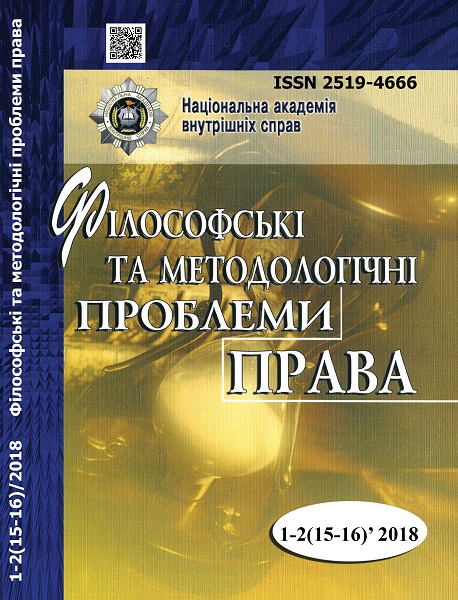Object of Proof in the Constitutional Trial of European Countries (Celʼzen Model)
Abstract
The article is devoted to the relevant, but non-investigative, issues related to the definition of the philosophical, legal, and methodological foundations of the formation of the evidence base in the process of constitutional proceeding. The author pays particular attention to the constitutional norms of foreign countries, which defines the subject of evidence in constitutional justice, which, like the domestic one, is constructed in accordance with the continental model of the Celʼzen. According to the results of the research, the author concludes that evidence in a constitutional proceeding organized by the Continental (Celʼzens) model has a certain specificity, which is as follows: 1. The European (Celʼzens) model of constitutional justice envisages the creation of special constitutional courts, which, as a rule, are not part of the judicial system and consider issues outside the scope of their competence outside the context of socio-political phenomena and the circumstances that prompted the appeal to them. 2. The powers and basic principles of the functioning of the constitutional justice body of such a model, in most cases, are determined by the norms of the constitutions and specified by the relevant laws. 3. The subject of proof in constitutional proceedings in the Continental (Celʼzens) model, as a rule, follows from the powers determined by the constitution and coincides with the subject of consideration of a particular case in accordance with the procedure established by law. Its specificity lies in the fact that the constitutional trial of such a model is limited to issues of law, that is, the clarification of the constitutionality or unconstitutionality of objects of constitutional judicial control, as well as the definition of the essence and content of objects of official interpretation, etc.
Downloads
Abstract views: 491 PDF Downloads: 866
Copyright (c) 2019 Philosophical and Methodological Problems of Law

This work is licensed under a Creative Commons Attribution-NonCommercial-NoDerivatives 4.0 International License.
- Authors reserve the right to authorship of their own work and transfer to the magazine the right of the first publication of this work under the terms of the Creative Commons Attribution License, which allows other persons to freely distribute published work with mandatory reference to authors of the original work and the first publication of an article in this magazine.
- Authors have the right to enter into separate additional agreements on non-exclusive dissemination of the work in the form in which it was published in the journal (for example, to post an article in the institution's repository or to publish as part of a monograph), provided that the link to the first publication of the work in this journal is maintained.
- The journal's policy allows and encourages the posting of articles by authors on the Internet (for example, in electronic storehouses of institutions or on personal websites), both before the submission of this manuscript to the editorial office and during its editorial processing, as this contributes to the creation of a productive scientific discussion and positively affects the efficiency and dynamics of citing the published work.




